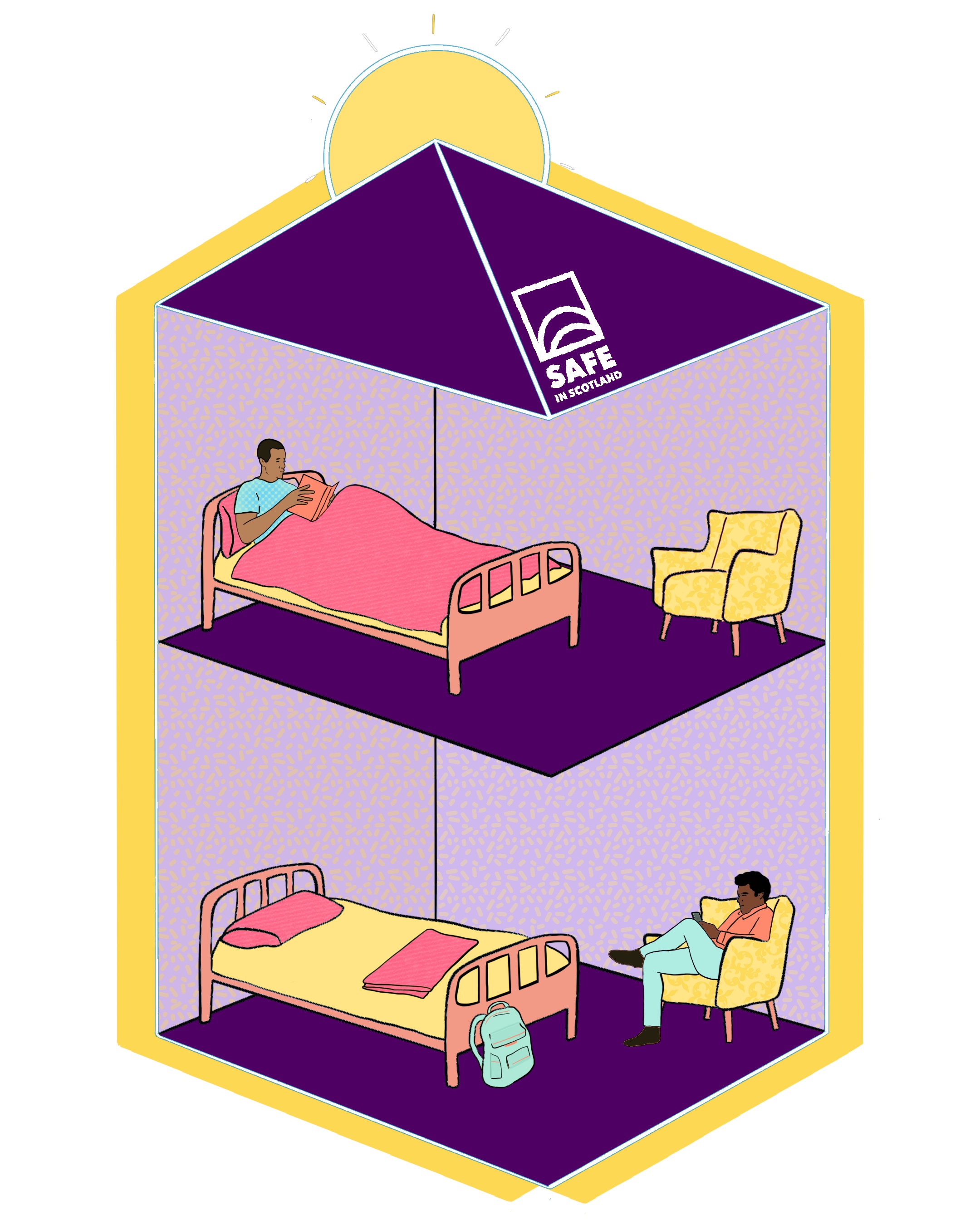In the refugee and asylum support sector, the word resilience comes up a lot.
When we think of resilience we think of progress, moving forward with new skills, learning from mistakes with new information, and new relationships. But often it’s also used to minimise the lived experience of people working through trauma or crisis.
As if perseverance was enough to tackle systemic problems. Throughout the Covid-19 pandemic we experienced many moments of resilience but also sharp moments of realisation and frustration.
We already knew that our night shelter was not good enough to support people in Glasgow facing destitution during the asylum process. But while the Home Office was forcing more and more people into dangerous survival decisions, we just didn’t have the means to change our setup.
Then, in January 2020, we reached a new agreement with a housing association enabling us to open a 24/7 centre with safe, private, dignified accommodation, hot meals, and space for socialising.
But by February, we noticed the rising threat of Covid-19. When the handwashing guidance came out in early March we knew we needed to move quickly. For our guests, this small change was a huge problem.

You can’t distance in a dormitory. You can’t stay at home if the place you stay is closed during the day. We needed to act quickly.
With support from our Board and our tireless team, we found 25 hotel rooms to house our current guests within 36 hours. Two days later we had two full floors with 48 guests. They included people from our waiting list and others who had previously been forced to make what can best be described as survival decisions.
The Scottish Government decided to help fund what we thought would be a short term intervention.
This intervention went beyond accommodation: we provided a 24/7 holistic service that helped connect our guests with legal and mental health services, get them online and talking to friends and family, and more. From 23rd March until 1st December 2020, we accommodated and supported 177 people.
It was clear that this was our moment to forge stronger bonds of partnership and prevent a rollback to the way things were.
Scotland can only solve homelessness in the long term by supporting people whose status is ‘no recourse to public funds’. All too often they, along with refugees and people seeking asylum, are an afterthought - marginalised further because they have informal or unstable accommodation.
We joined the Everyone Home collective, which now includes 34+ organisations founded to protect this progress and change the system permanently.
Together, we developed Fair Way Scotland — a new system and service response to end homelessness and destitution in Scotland by creating a fair way forward. That way, people with no rights to housing, benefits or local authority support because of UK policy, will have a safe place to stay and access to essentials, support, and advice while they work out their next steps.
Our community had been broadly ignored and is now squarely in the plans to prevent and end homelessness.
These partnerships give us strength, community, and scope for collective action. There is now a national commitment to end night shelters and a route map to prevent a rollback.
Safe in Scotland fully transitioned to our new space in December 2020 and can now offer 17 guests immediate access to dignified private accommodation; time, space and support to explore their rights; and services to improve their wellbeing.

A personal digital device to stay in touch with social networks and services, with access to electricity to charge devices; and specialist advice, advocacy, and support which is relevant to their circumstances.
With our partners, we hope to replicate this by adding individual and small shared flats to the mix so that we can be truly person-centred.
The causes of homelessness are structural. The answers are too. Working together, we will design-out destitution from the refugee experience in Scotland.